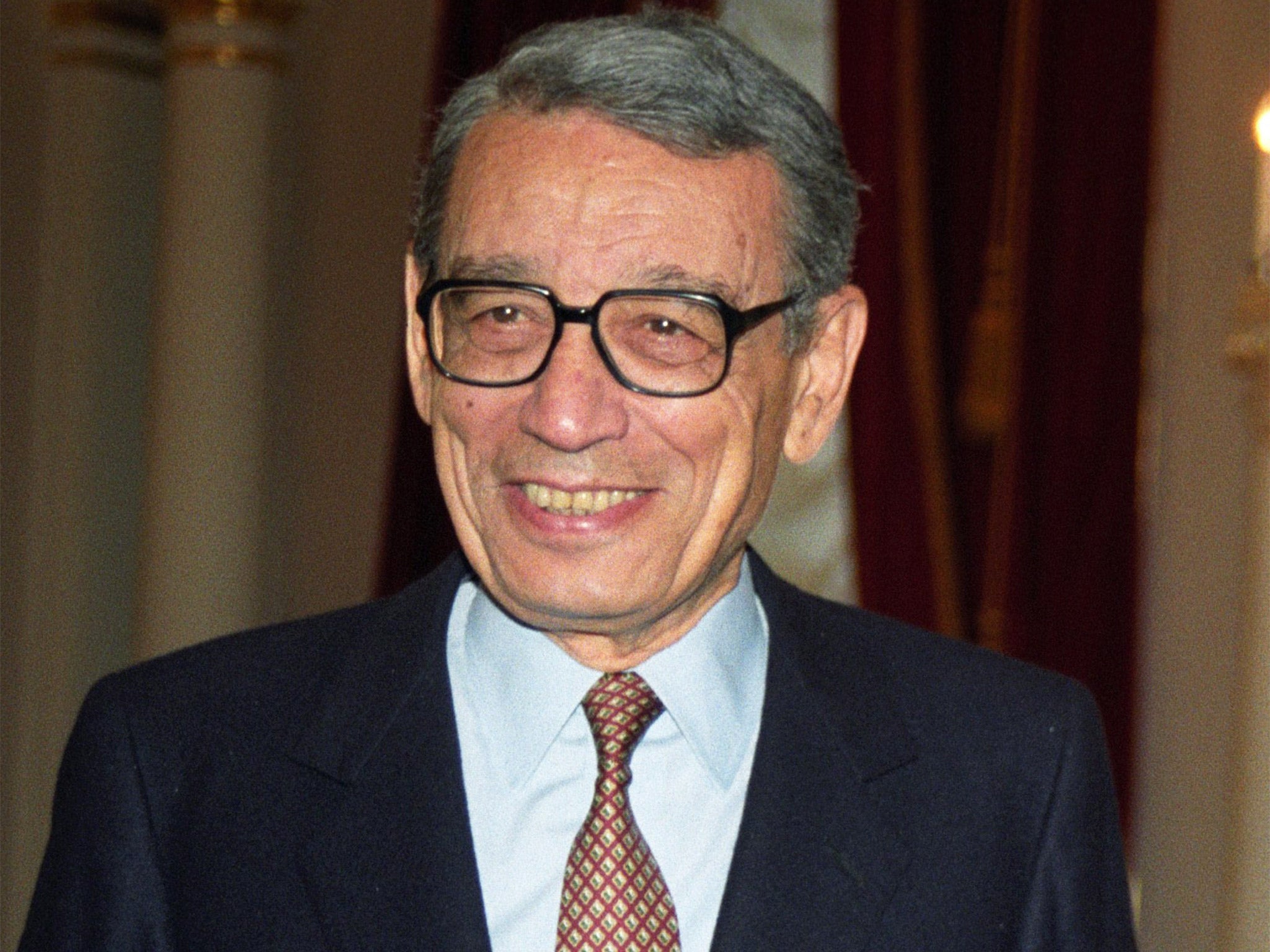Boutros Boutros-Ghali dead: Tributes paid to UN’s first African Secretary-General
As an Arab, he won praise for his role in helping to bring the violence of the first Palestinian uprising to a temporary end

Boutros Boutros-Ghali, the first African Secretary-General of the United Nations, has died at the age of 93.
The Egyptian, who served as the head of the UN between 1992 and 1996, passed away in hospital in Cairo. He had been admitted last week after breaking his pelvis. His death was announced by Rafael Ramirez, the Venezuelan ambassador to the UN. His country currently holds the presidency of the 15-member Security Council.
A minute’s silence was held before the body debated the humanitarian crisis facing Yemen, where at least half the population faces starvation as a result of the country’s civil war.
Mr Boutros-Ghali was the first UN Secretary-General to organise a mass humanitarian relief effort after famine struck the Horn of Africa in the early 1990s.
He was also in office at the end of first Palestinian uprising, or Intifada, against the Israeli occupation of the Palestinian territories. As an Arab, he won praise for his role in helping to bring the violence to a temporary end.
The current Secretary-General, Ban Ki-moon, said that Mr Boutros-Ghali had brought “formidable experience and intellectual power to the task of piloting the United Nations through one of the most tumultuous and challenging periods in its history”.
However, it is likely that Mr Boutros-Ghali’s controversial moments will be best remembered. The Egyptian’s term in office coincided with the war in Yugoslavia, during which he shocked many in Sarajevo when he said that while he was not trying to play down the horrors taking place in Bosnia, that there were other conflicts in which the “total dead was greater than here”.
One of the organisation’s darkest periods came when the UN was accused of being slow to react to the Rwandan genocide in 1994 – as many as a million Tutsis and Houthis were killed in sectarian violence, when just three months of conflict led to the deaths of an estimated 20 per cent of the Rwandan population.
It is also believed that he was eager that the US engage the Somali rebel leader Mohamed Farrah Aidid as a result of a personal feud. The resulting mission, which took place in Mogadishu in 1993, left several hundred Somalis and 18 American servicemen dead. The episode was later turned into a Hollywood film, Black Hawk Down.
Mr Boutros-Ghali was initially backed, largely by the 10 African states then sitting on the Security Council, to serve a second five-year term, despite earning the nickname “the pharaoh” for the pace at which he tackled bureaucracy and cut jobs.
The Clinton administration subsequently vetoed his re-appointment. In the mid-1990s, relations between the UN and the United States were strained, especially over demands that Washington pay the organisation more than $1bn (£700m) in unpaid fees. It is believed that Bill Clinton used the veto to assuage Republican criticism of the UN under Mr Boutros-Ghali, who later admitted that “disillusion set in” during his years in office.

A Coptic Christian, Mr Boutros-Ghali was born to a wealthy Egyptian family. His grandfather, Boutros Ghali, served as Egyptian prime minister between 1908 and 1910, when he was assassinated.
A lawyer educated at Cairo University and Science Po, he became a professor of international law, before later becoming a Fulbright scholar at Columbia University.
His political career took off under Egyptian President Anwar Sadat, who appointed him foreign minister in 1979. He was an instrumental part of Egypt’s peace negotiations with Israel.
Mr Boutros-Ghali was succeeded at the United Nations by another African, Kofi Annan, in 1997.
Join our commenting forum
Join thought-provoking conversations, follow other Independent readers and see their replies
Comments
Bookmark popover
Removed from bookmarks